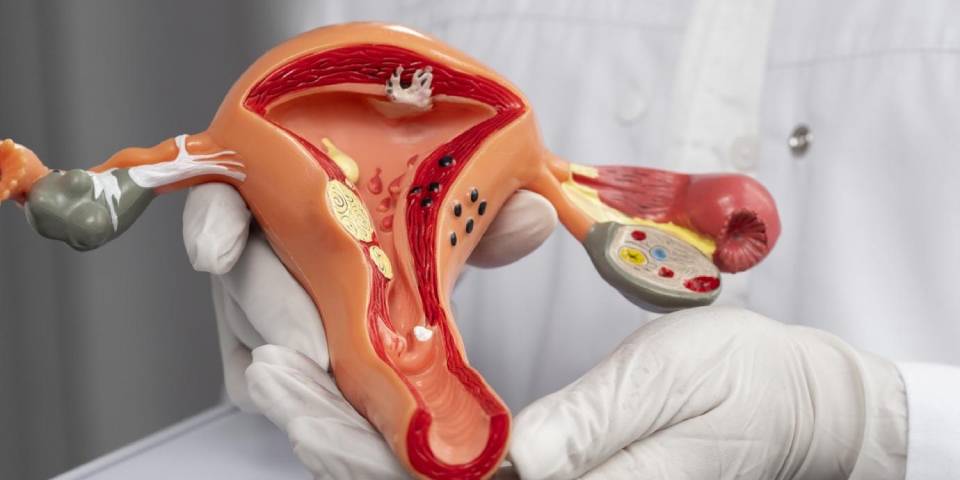At Excella Women’s Wellness Clinic, we understand the deep impact that fallopian tube blockage can have on a woman’s reproductive health and overall well-being. Over 30% of women suffering from Infertility have either blocked or damaged fallopian tubes. Dr. Shraddha Galgali and her team are dedicated to providing complete care and support to those affected by this condition. In the Infertility Treatment in Punawale, specialist Dr. Shraddha Galgali will explain the causes, symptoms, diagnosis, and treatment options for fallopian tube blockage, helping you gain a clear understanding of this crucial aspect of reproductive health.
What is Fallopian Tube Blockage?
The fallopian tubes are two thin tubes that link the ovaries to the uterus. They play an important role in the reproductive process by allowing the egg to travel from the ovary to the uterus and providing a place for fertilization to occur. Blockage in these tubes can prevent the egg from reaching the uterus, leading to difficulties in conception.
Causes of Fallopian Tube Blockage:
Dr. Shraddha Galgali is the best Gynecologist in Wakad and advised Several factors can contribute to fallopian tube blockage, including:
- Pelvic Inflammatory Disease (PID): This infection, often caused by sexually transmitted infections (STIs), can lead to scarring and blockage of the fallopian tubes.
- Endometriosis: A condition where tissue similar to the lining of the uterus grows outside of it, potentially causing blockages.
- Fibroids: Noncancerous growths in the uterus that can interfere with the fallopian tubes.
- Previous Surgeries:Abdominal or pelvic surgeries may result in scar tissue that obstructs the fallopian tubes.
- Ectopic Pregnancy: A pregnancy that occurs outside the uterus, often in the fallopian tube, can cause damage and blockage.
Symptoms of Fallopian Tube Blockage:
Many ladies with fallopian tube blockage may not experience noticeable symptoms, particularly if the blockage is partial. However, some common signs include:
- Difficulty Conceiving: Inability to become pregnant despite regular, unprotected sex.
- Pelvic Pain: Chronic or intermittent pain in the pelvic area.
- Irregular Menstrual Cycles: Changes in the menstrual cycle or heavy bleeding.
- Painful Periods: Increased pain during menstruation.
Diagnosing Fallopian Tube Blockage:
To diagnose a stomach ulcer, Dr. Shraddha Galgali may recommends the following tests:
- Hysterosalpingography (HSG): This X-ray procedure involves injecting a contrast dye into the uterine cavity and fallopian tubes to visualize any blockages.
- Sonohysterography (SHG): Also known as saline infusion sonography, this test uses ultrasound and saline to assess the inside of the uterus and fallopian tubes.
- Laparoscopy: An insignificantly intrusive careful strategy that permits direct perception of the conceptive organs and can assist with distinguishing blockages and their causes.
- Sonography: Ultrasound imaging to check for irregularities in the reproductive organs.
Treatment Options for Fallopian Tube Blockage:
Dr. Shraddha Galgali offers a range of treatment options tailored to the underlying cause and severity of the Fallopian Tube Blockage:
- Medications: Antibiotics may be prescribed if the blockage is due to an infection.
- Surgery: Surgical methods such as tubal cannulation or laparoscopic surgery may be conducted to remove blockages or repair damaged tubes. In some cases, tubal anastomosis can reconnect the tubes if they were previously blocked or ligated.
- In Vitro Fertilization (IVF): For severe blockages where surgery is not an option or has not been successful, IVF may be advised. IVF bypasses the fallopian tubes by fertilizing the egg in the lab and then implanting the embryo directly into the uterus.
- Lifestyle Changes: Addressing underlying health issues, such as managing infections or reducing the impact of endometriosis, can sometimes improve fertility.
Preventing Fallopian Tube Blockage:
While not all cases of fallopian tube blockage can be prevented, certain measures can reduce the risk:
- Safe Sex Practices: Using protection to prevent sexually transmitted infections.
- Daily Check-ups: Routine gynecological tests can help distinguish and resolve issues early.
- Prompt Treatment of Infections: Looking for clinical consideration for pelvic contaminations or side effects of STIs.
Dr. Shraddha Galgali is the best Uterine Fibroids Treatment in Punawale. Fallopian tube blockage can be a challenging condition, but with the right diagnosis and treatment, many ladies achieve successful pregnancies and improved reproductive health. If you’re experiencing difficulty conceiving or have concerns about your reproductive health, contact Dr. Shraddha Galgali’s Excella Women’s Wellness Clinic for a thorough evaluation and expert care.
Feel Free to Contact or schedule a talk With Dr. Shraddha’s Excella Women’s Wellness Clinic today and the Laparoscopic Surgery in Punawale for a consultation.

